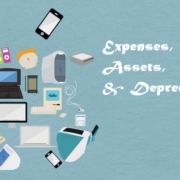Posts
Small Business Tax in Temecula: Your Sole Proprietor’s Guide to the October 15 Extension Deadline
/0 Comments/in Tax servicesHow to Stay Protected from Tax Fraud and Scams in Southern California
/0 Comments/in Tax servicesHave you received an email claiming to be from the IRS that doesn’t sit right? Or perhaps a phone call demanding immediate payment? These are typical examples of IRS tax scams targeting individuals and businesses. For small business owners in Southern California, it’s critical to recognize, avoid, and report such scams while working with reliable professionals like Summerhill Tax Services for expert tax preparation and guidance.
Understanding IRS Tax Scams
Scammers are getting more sophisticated at impersonating the IRS or tax professionals. These scams exploit common fears about audits, penalties, and late payments. Small business owners are vulnerable as they regularly interact with forms, payments, and compliance procedures.
Fake IRS notices sent via email, text, phone call, or even mailed letters often ask for personal information or instant payments. Recognizing the red flags is the first step to protecting your finances and personal data from fraud.
Tips to Recognize and Avoid Tax Scams
Here are actionable ways to stay one step ahead of scammers targeting your business or personal taxes.
1. Know How the IRS Communicates
Legitimate communication from the IRS will never include threatening phone calls, demands for gift cards, or unsolicited emails requesting sensitive information. They typically send notices via mail first.
How Summerhill Tax Services Can Help:
Summerhill Tax Services continually reviews any IRS correspondence you receive to confirm legitimacy. If you’re unsure, bring it to our office in Murrieta, and our seasoned tax professionals will guide you.
2. Beware of Phishing Scams
Phishing emails and websites are among the most common ways scammers steal information. These emails often contain links or attachments that compromise your data.
Pro Tip: Never click on suspicious links or share financial details online unless you’ve verified the source.
3. Use Trusted Tax Preparation Services
Working with dependable professionals for tax preparation reduces the chances of errors and fraudulent filings. Scammers often use fake tax preparer credentials to lure victims.
Why Choose Summerhill Tax Services:
We’ve been helping Southern California businesses safeguard their tax filings with 15+ years of expertise. Unlike fly-by-night preparers, we’re available year-round to offer continued support.
4. Protect Sensitive Information
Never share your Social Security number, EIN, or banking details without verifying the recipient. Store sensitive documents securely and dispose of old records properly.
5. Watch Out for Fraudulent Refund Schemes
Some scams trick victims by offering inflated refunds for personal details. Remember, legitimate tax consultants will never promise substantial refunds or deposit money directly into their accounts.
Summerhill Tax Safeguards:
Our tax experts ensure every refund claim complies with IRS rules, eliminating the risk of fraudulent claims under your name.
6. Report Scam Attempts
If you encounter suspicious activity, report it immediately to the IRS (use form 14039 for identity theft or visit the IRS’s scam reporting page). Reporting helps reduce their prevalence.
Why Professional Expertise Matters for Small Businesses
Tax-related scams can be especially damaging to small business owners, leading to penalties, data loss, or even identity theft. However, by working with trusted tax professionals like Summerhill Tax Services in Southern California, you can significantly mitigate these risks.
At Summerhill, we combine expert tax preparation with proactive fraud protection. Our team knows the Murrieta area well and understands small businesses’ unique challenges. Whether it’s reviewing IRS correspondence, providing secure tax filing, or offering reliable consultation, we’re committed to supporting your business year-round.
Secure Your Business with Confidence
Protecting yourself from tax fraud and scams begins with staying informed and working with seasoned professionals. Don’t leave your finances or personal data to chance. With Summerhill Tax Services, Southern California businesses can rest assured their taxes are in expert hands.
Learn more about how we can help safeguard your tax filings. Contact us today for a free consultation, or stop by our office in Murrieta.
Ask Your Local Tax Preparer in Murrieta: Understanding IRS Payment Plans
/0 Comments/in Tax servicesDealing with tax debt can be stressful, especially for individual taxpayers across Southern California. Fortunately, the IRS offers manageable solutions, like payment plans, to help taxpayers address outstanding balances in a structured and timely way. At Summerhill Tax Services, we specialize in guiding Murrieta residents and taxpayers throughout the region through such processes with expertise and care. Here, we break down everything you need to know about IRS payment plans—from eligibility to benefits—so you can regain control of your financial future.
What Are IRS Payment Plans?
An IRS payment plan, also known as an installment agreement, allows taxpayers to pay off their tax debt over time instead of one lump sum. This option is especially beneficial for those unable to meet payment deadlines without causing significant financial strain.
There are two main types of IRS payment plans:
- Short-term payment plan–Ideal for taxpayers who can pay off their debt in 180 days or less, often involving no setup fees if paid in full within this period.
- Long-term payment plan: This is for taxpayers needing over 180 days to repay. It usually has a setup fee and requires ongoing monthly payments.
These plans make it easier for individuals to comply with their financial obligations while avoiding harsher penalties.
 Who Is Eligible for an IRS Payment Plan?
Who Is Eligible for an IRS Payment Plan?
Most individual taxpayers qualify for an IRS payment plan if they meet certain conditions.
Eligibility for creating a short-term or long-term plan online depends on the amount of tax owed.
- For Short-Term Plans: Taxpayers must owe $100,000 or less in combined tax, penalties, and interest.
- For Long-Term Plans: Taxpayers must owe $50,000 or less in combined tax, penalties, and interest.
Additionally, taxpayers must file all required tax returns before applying. Staying compliant with filing requirements ensures eligibility for these payment options.
Steps to Apply for an IRS Payment Plan
Applying for an IRS payment plan is more straightforward than expected, but precision is critical to ensure approval.
Here’s how you can apply it efficiently:
- Assess Your Tax Debt
Use the IRS Online Account tool to view your current balance, including penalties and interest. Confirm that you meet the eligibility requirements for the type of plan you wish to apply for.
- Select a Payment Plan
Determine whether a short-term or long-term plan fits your financial situation. Do you have the means to pay off your debt within six months, or will you require a longer period to ensure manageable payments?
- Submit Your Application
You can apply online through the IRS website or by mailing Form 9465 (Installment Agreement Request). Depending on your method, processing times may vary.
- Make Your First Payment
Once your plan is approved, make timely monthly payments to prevent penalties or cancellation of the agreement.
How IRS Payment Plans Work
Once approved, your installment plan will split your tax debt into manageable monthly payments. Payments are often arranged via direct debit, ensuring you don’t miss deadlines. Setting up such an agreement can help halt collection activities from the IRS, such as liens or levies.
However, interest and penalties will continue to accrue on your balance until the entire amount is paid off. To minimize these costs, paying off your debt as quickly as possible is advisable.
The Benefits of Using an IRS Payment Plan
The IRS payment plan is more than just a means of paying off tax debt—it provides peace of mind for taxpayers balancing multiple financial responsibilities.
Key benefits include:
- Avoiding Garnishments or Penalties: Enrolling in a payment plan helps you avoid potential wage garnishment or escalated penalties from the IRS.
- Predictable Monthly Payments: You can budget effectively by breaking your debt into fixed, manageable chunks.
- Peace of Mind: With a payment plan in place, immediate IRS collection actions are paused, allowing you to focus on resolving the debt without added pressure.
Payment plans are especially valuable for taxpayers hoping to remain compliant while preserving financial stability.
Take Control With Summerhill Tax Services
Navigating IRS payment plans can be a complex task, and ensuring accuracy in your application is critical. That’s where Summerhill Tax Services comes in. As a trusted tax preparer in Murrieta, we’ve spent over a decade helping Southern California residents like yourself confidently handle tax issues.
Our experienced team can assess your eligibility, guide you through the application process, and help you choose the best plan for your financial situation. Don’t tackle tax debt alone—reach out to Summerhill Tax Services today at (951) 677-9909 or complete our Contact Us Form to schedule your FREE consultation and take the first step toward financial clarity.
Expenses, Assets & Depreciation
/0 Comments/in About SummerhillMost business owners are familiar with the Profit & Loss Report, to most money you make is income and money that goes out is an expense. But that’s not always the case, an expense is something that gets used up rather quickly and therefore the benefit is used up quickly. Some examples are office supplies, you purchase during the year and they get used up during the year. But there are other purchases that tend to hold up business owners record keeping because even though money is being spent, it is not fully expensed the year they you use it. This can give you a incorrect analysis of your business and not match up when it comes to taxes.
Assets
Sometimes when you make a purchase it’s not an expense, it’s actually an asset. An asset is something where the usefulness is used up over the course of several years. It provides a benefit over a longer period of time. Examples include equipment, vehicles, or a computer.
As an example, when you purchase a vehicle and use it to deliver products, it’s providing a benefit to you over the course of much more than just one year. That’s the difference between an asset and an expense. Does the purchase benefit you over the course of a long period of time? An asset will help you continue to earn revenue over the course of several years.
Matching Revenues and Expenses
In accounting rules, revenue and its associated expenses should be recorded in the same period. This is called matching. Let’s say you purchased a camera and recorded the entire purchase as an expense in the year you purchased it — 2015. But the camera helps you earn money in 2015, 2016, 2017, 2018, 2019 . . . a long time. So the expense and the revenue aren’t matched up together. You’ve got revenue produced by the camera recorded over the course of several years, but the expense of the camera is only recorded in one year. The revenue and expense are not matched.
Matching is a very important accounting principle, the revenue and associated expense need to be matched together. This is where depreciation comes into play. The way you get the revenue and expense to match up, is to depreciate that asset over the course of several years.
Depreciation
Lets say you bought a $5,000 computer, that expense needs to spread out over how long you think you will have that computer. In other words, The expense needs to spread over the computer’s useful life – the period of time that it will be of benefit to you. Often for small equipment that’s 3-5 years. Let’s say you think the computer will last you 5 years, (i.e. it has a useful life of 5 years) you take $5,000/5 years=$1,000 of depreciation you should take each year on that computer.
In this way you are spreading out the expense to match the revenue you earn in future years.
Depreciation also serves to show that the asset you purchased is losing value every year. Let’s say you are a florist who purchased a vehicle to deliver flowers. It’s only used for business. You purchased the vehicle for $20,000 and you think it will last you for 10 years, so that’s $2,000 of depreciation every year. The car is helping you earn your revenue over the course of 10 years. When you take that depreciation each year, you can see that that car is losing value every year. After the first year of depreciation the asset is valued at $18,000, after the second year $16,000, and so on.
That makes sense in our heads. A car loses value every year. As the years go on, your asset is losing value. Depreciation shows that declining value.
“Beware of scammers this Tax season”
/0 Comments/in About SummerhillTax Filer,
Do not! I repeat “Do Not” answer calls or emails that say on your caller ID that it is from the IRS.
Scammers this year are putting a new twist on old scriptures. They call by saying they are the IRS and they need to verify your identity in order to send you your refund.
The scammers have been able to manipulate the caller ID so that on your telephone it shows it’s a call from the IRS. They will try and persuade you to give them your personal information such as social security number, driver’s license, bank account numbers and credit card information.
There have been reports that they threaten people by saying they will revoke their license or call the authorities or even deport them if they don’t get your information, be aware that scammers will say fake badge numbers and names and might even have your name and address to try and make the call or email sound more realistic.
If you receive a call like that hang up quickly and do not click on that email and immediately contact the Treasury Inspector General for Tax Administration to report the call. Use the “IRS Impersonation Scam Reporting” web page www.treasury.gov/tigta or call 1-800-366-4484.
What if your not ready to file your taxes by April 18th?
/0 Comments/in About SummerhillAre you worried about not filing your taxes on time?
The last day to file your tax return is Monday April 18th. No worries! You can always file an extension, also the state of California does an automatic file extension for you. The IRS actually gives you 6 more months. This is good news for people who have not yet file because they probably moved from a different state and have not yet received all their forms, or just haven’t had the time to get the tax form done. Even though the IRS gives you an extension and your procrastinating because you owe you should calculate how much you owe and send a payment to the IRS remember they may charge penalties and interest if you don’t pay on time.
About SummerHill Tax Services
Summerhill Tax Services was established in 2008. We are determined in helping our clients maintain quality record keeping and tax compliance. Our staff has worked under seasoned professionals sharpening their skills to better serve you. We enjoy what we do and it shows, not only in our work but by the high level of customer service and the commitment we provide.
The Highest priority of Summerhill Tax Service is to encourage, support and enable the self-employed to unfold their full potential and ability.
Blogs
- Small Business Tax Preparation in Murrieta: Mastering Q4 Planning
- Maximizing Profitability with Strategic Business Tax Services in Murrieta
- Simplifying Your Finances: The Value of Professional Tax Prep in Murrieta
- Small Business Tax in Temecula: Your Sole Proprietor’s Guide to the October 15 Extension Deadline
- Expert Tax Prep in Temecula Valley: A Guide for Individuals and Businesses






 Who Is Eligible for an IRS Payment Plan?
Who Is Eligible for an IRS Payment Plan? 

